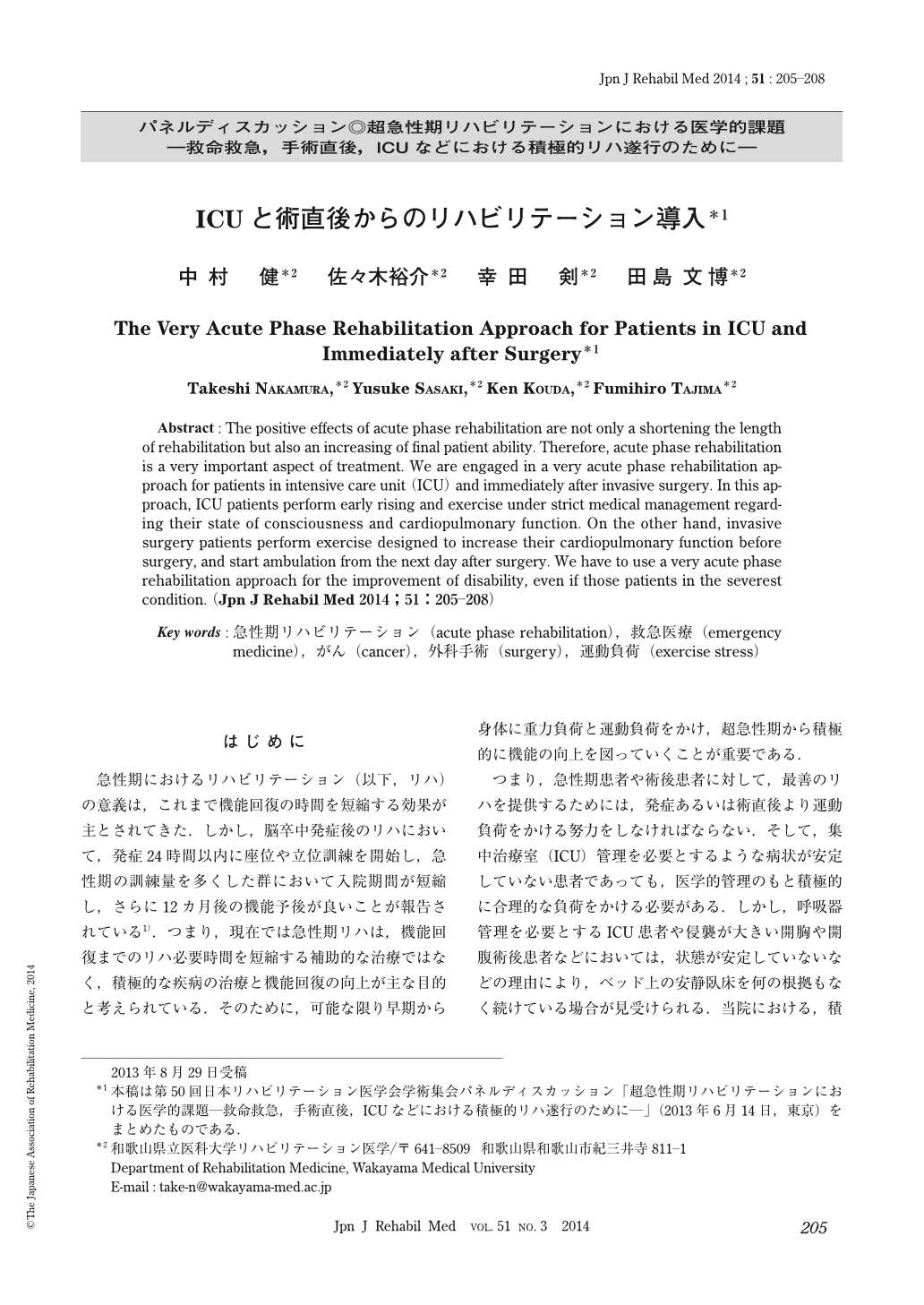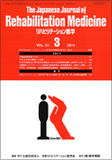Japanese
English
- 販売していません
- Abstract 文献概要
- 1ページ目 Look Inside
- 参考文献 Reference
はじめに
急性期におけるリハビリテーション(以下,リハ)の意義は,これまで機能回復の時間を短縮する効果が主とされてきた.しかし,脳卒中発症後のリハにおいて,発症24時間以内に座位や立位訓練を開始し,急性期の訓練量を多くした群において入院期間が短縮し,さらに12カ月後の機能予後が良いことが報告されている1).つまり,現在では急性期リハは,機能回復までのリハ必要時間を短縮する補助的な治療ではなく,積極的な疾病の治療と機能回復の向上が主な目的と考えられている.そのために,可能な限り早期から身体に重力負荷と運動負荷をかけ,超急性期から積極的に機能の向上を図っていくことが重要である.
つまり,急性期患者や術後患者に対して,最善のリハを提供するためには,発症あるいは術直後より運動負荷をかける努力をしなければならない.そして,集中治療室(ICU)管理を必要とするような病状が安定していない患者であっても,医学的管理のもと積極的に合理的な負荷をかける必要がある.しかし,呼吸器管理を必要とするICU患者や侵襲が大きい開胸や開腹術後患者などにおいては,状態が安定していないなどの理由により,ベッド上の安静臥床を何の根拠もなく続けている場合が見受けられる.当院における,積極的な疾病の治療と機能回復の向上を目的とした,ICU患者と侵襲的手術患者における急性期リハの取り組みについて示す.
Abstract : The positive effects of acute phase rehabilitation are not only a shortening the length of rehabilitation but also an increasing of final patient ability. Therefore, acute phase rehabilitation is a very important aspect of treatment. We are engaged in a very acute phase rehabilitation approach for patients in intensive care unit (ICU) and immediately after invasive surgery. In this approach, ICU patients perform early rising and exercise under strict medical management regarding their state of consciousness and cardiopulmonary function. On the other hand, invasive surgery patients perform exercise designed to increase their cardiopulmonary function before surgery, and start ambulation from the next day after surgery. We have to use a very acute phase rehabilitation approach for the improvement of disability, even if those patients in the severest condition.

Copyright © 2014, The Japanese Association of Rehabilitation Medicine. All rights reserved.


